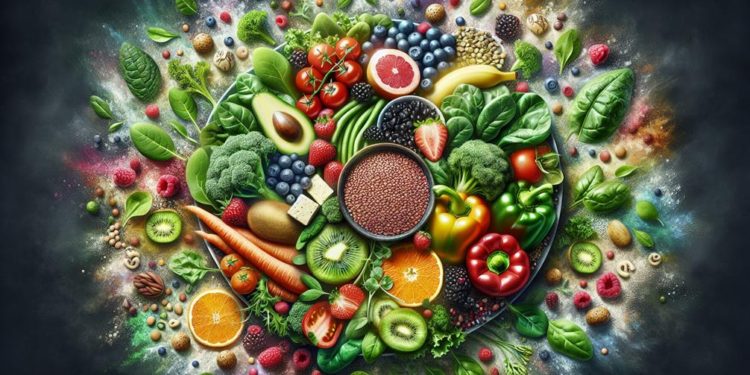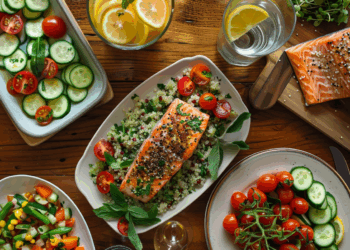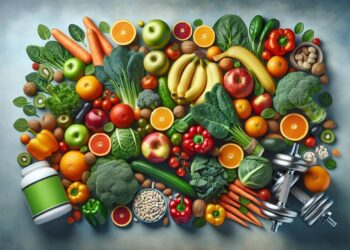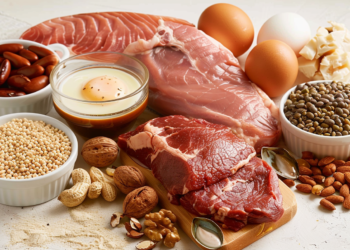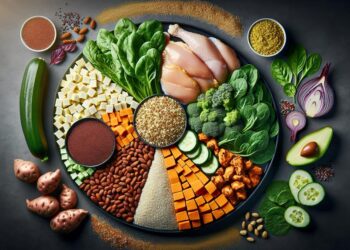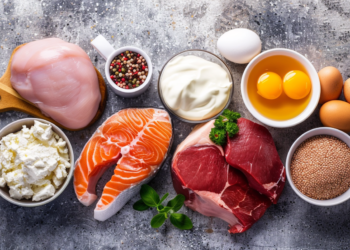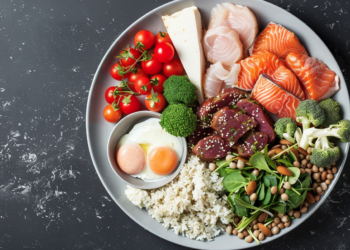Are you looking to take your fitness to the next level? If so, consider the power of a plant-based diet in building strength and achieving your fitness goals. Imagine fueling your body with nutrient-rich plants that not only provide the necessary fuel for your workouts, but also promote muscle growth and recovery. But how exactly does a plant-based diet help in building strength? And what are the key nutrients you need to focus on? In this discussion, we will explore the benefits of a plant-based diet for fitness and delve into essential nutrients and meal planning strategies to support your journey towards building strength with plants. Get ready to discover a whole new world of plant-powered fitness!
Key Takeaways
- A plant-based diet can benefit fitness by increasing endurance, improving recovery time, and supporting overall health and well-being.
- Essential nutrients for building strength on a plant-based diet include protein sources like lentils, tofu, and nuts, as well as iron sources like spinach and chickpeas.
- Calcium sources such as kale and fortified plant-based milk, and vitamin B12 sources like fortified plant-based milk and nutritional yeast, are also important for a plant-based fitness diet.
- Meal planning, balancing macronutrients, and incorporating protein sources like lentils, quinoa, tofu, and chickpeas can support muscle growth on a plant-based diet.
Benefits of a Plant-Based Diet for Fitness
Switching to a plant-based diet can provide numerous benefits for your fitness journey, helping you achieve your goals and improve overall health. One of the key advantages of a plant-based diet is increased endurance. Plant-based foods are rich in complex carbohydrates, which are the primary source of energy for your muscles during exercise. By consuming a variety of fruits, vegetables, whole grains, and legumes, you ensure a steady supply of glucose to your muscles, enhancing your endurance and allowing you to sustain intense workouts for longer periods of time.
Additionally, plant-based nutrition has been shown to improve recovery time. Plants are packed with antioxidants, which help reduce inflammation and oxidative stress caused by intense exercise. This can speed up the recovery process by reducing muscle soreness and promoting tissue repair. Plant-based foods also provide essential vitamins and minerals that support muscle recovery, such as vitamin C for collagen production and iron for oxygen transport.
Essential Nutrients for Building Strength on a Plant-Based Diet
To build strength on a plant-based diet, it is essential to ensure you are obtaining all the necessary nutrients. While a well-planned plant-based diet can provide most of the necessary nutrients for building strength, there are a few key nutrients that plant-based athletes may need to pay extra attention to. These include protein, iron, calcium, and vitamin B12.
| Nutrient | Sources | Recommended Daily Intake |
|---|---|---|
| Protein | Lentils, tofu, tempeh, quinoa, nuts, seeds | 1.2-2.0 grams per kilogram of body weight |
| Iron | Spinach, lentils, chickpeas, fortified cereals | 18 mg for women, 8 mg for men |
| Calcium | Kale, broccoli, fortified plant-based milk, tofu | 1000 mg for adults |
| Vitamin B12 | Fortified plant-based milk, nutritional yeast, supplements | 2.4 mcg for adults |
While it is possible to obtain these nutrients from plant-based sources alone, some athletes may choose to supplement their diet with dietary supplements to ensure they are meeting their nutrient needs. It is important to consult with a healthcare professional or registered dietitian before starting any dietary supplements to ensure they are safe and appropriate for you.
Meal Planning for Optimal Fitness on a Plant-Based Diet
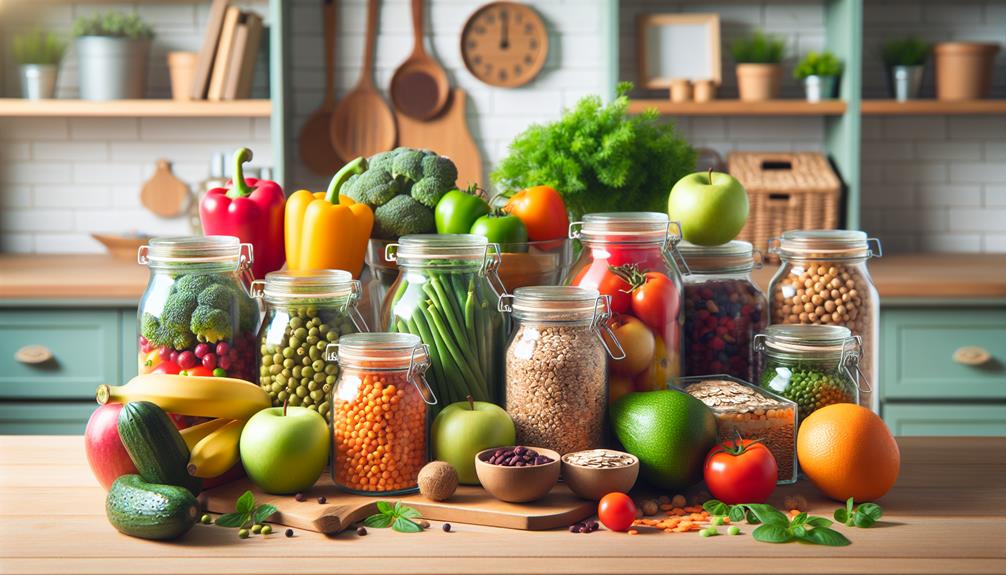
When it comes to optimizing your fitness on a plant-based diet, strategically planning your meals can play a crucial role in ensuring you are fueling your body with the right nutrients for strength and endurance. As a vegan athlete, meal prep becomes even more important to meet your specific dietary needs. Here are some key tips to help you plan your meals for optimal fitness:
- Plan your meals in advance: Take some time each week to plan your meals and create a shopping list. This will help you stay organized and ensure you have all the necessary ingredients on hand.
- Focus on nutrient-dense foods: Include a variety of whole plant foods such as fruits, vegetables, whole grains, legumes, nuts, and seeds in your meals. These foods are rich in essential nutrients and will provide the energy you need for your workouts.
- Balance your macronutrients: Make sure each meal contains a balance of carbohydrates, protein, and healthy fats. Carbohydrates will provide you with energy, protein will help repair and build muscles, and healthy fats will support overall health and hormone production.
- Pre-portion your meals: Invest in some meal prep containers and pre-portion your meals for the week. This will make it easier to grab a nutritious meal on the go and prevent you from reaching for unhealthy options.
- Experiment with recipes: Don't be afraid to try new plant-based recipes to keep your meals exciting and enjoyable. There are plenty of resources available online and in cookbooks specifically catered to vegan athletes.
Protein Sources for Muscle Growth on a Plant-Based Diet
One key aspect of optimizing muscle growth on a plant-based diet is ensuring you have a variety of protein sources in your meals. While many people believe that animal products are the only way to build muscle, plant-based athletes have proven that this is not the case. There are a plethora of vegan protein powders and other plant-based protein sources available that can support muscle growth and recovery.
To help you make informed choices, here is a table showcasing some excellent plant-based protein sources:
| Protein Source | Protein Content (per 100g) | Benefits |
|---|---|---|
| Lentils | 9g | High in fiber and essential nutrients |
| Quinoa | 4g | Contains all essential amino acids |
| Tofu | 8g | Good source of calcium and iron |
| Chickpeas | 19g | Rich in fiber and antioxidants |
| Hemp Seeds | 31g | High in omega-3 fatty acids |
In addition to these whole food options, there are also a variety of vegan protein powders available. These powders are made from plant-based sources such as pea, rice, and hemp, and can provide a convenient and concentrated source of protein.
Plant-Based Recipes to Support Your Fitness Goals
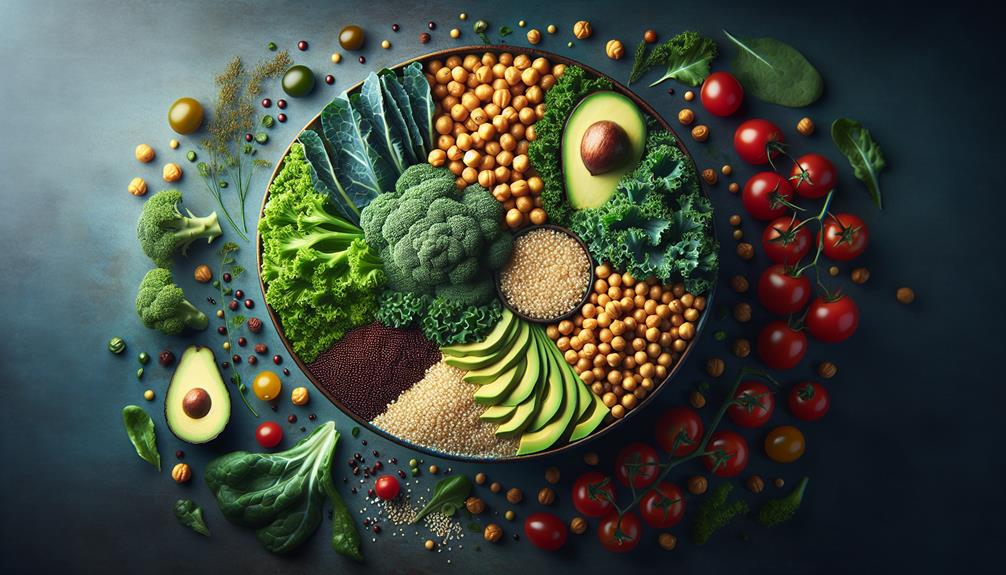
Now that you have learned about protein sources for muscle growth on a plant-based diet, let's explore some delicious and nutritious plant-based recipes that will support your fitness goals. Whether you need pre-workout fuel or post-workout recovery, these recipes will provide you with the nutrients your body needs to maximize your performance and enhance your recovery.
Here are five plant-based recipes to help you on your fitness journey:
- Protein-packed smoothie: Blend together a combination of plant-based protein powder, almond milk, spinach, banana, and a tablespoon of nut butter for a quick and easy pre-workout fuel.
- Quinoa power bowl: Cook quinoa, and top it with roasted vegetables, chickpeas, avocado, and a drizzle of tahini. This bowl is packed with protein, fiber, and healthy fats to support your post-workout recovery.
- Lentil and vegetable stir-fry: Sauté lentils, mixed vegetables, and tofu in a stir-fry sauce made with tamari, ginger, and garlic. Serve over brown rice for a balanced and protein-rich meal.
- Chickpea salad wrap: Mash chickpeas with avocado, lemon juice, and spices, and spread it onto a whole-grain wrap. Add fresh vegetables like lettuce, tomatoes, and cucumbers for a refreshing and protein-packed post-workout snack.
- Sweet potato and black bean chili: Cook sweet potatoes, black beans, tomatoes, and spices in a slow cooker for a hearty and protein-rich chili. Top it with avocado and cilantro for added flavor.
Frequently Asked Questions
Are Plant-Based Diets Suitable for Athletes or Individuals Looking to Build Muscle?
Plant-based diets are suitable for athletes and muscle-building goals. They offer numerous benefits for overall health and wellness, including reducing inflammation and improving recovery. Incorporating plants into your diet can help you achieve your fitness goals.
Can a Plant-Based Diet Provide Enough Protein for Muscle Growth and Recovery?
Sure, a plant-based diet can definitely provide enough protein for muscle growth and recovery. In fact, plant-based protein sources have many benefits like being rich in fiber and antioxidants. Plus, they can be just as effective as animal-based protein for building strength.
How Can I Ensure I Am Getting Enough Essential Nutrients, Such as Iron and Calcium, on a Plant-Based Diet for Fitness?
To ensure you're getting enough essential nutrients like iron and calcium on a plant-based diet for fitness, focus on balancing nutrient intake. Incorporate plant-based sources like leafy greens, legumes, and fortified foods into your meals.
Are There Any Specific Meal Planning Strategies or Tips for Optimizing Fitness on a Plant-Based Diet?
To optimize fitness on a plant-based diet, try meal prepping to ensure you have nutritious meals readily available. Also, consider nutrient timing by consuming protein-rich foods before and after workouts for muscle recovery and growth.
What Are Some Plant-Based Recipes That Can Support Muscle Growth and Recovery?
Looking to support muscle growth and recovery on a plant-based diet? Try incorporating plant-based protein sources like lentils, tofu, and quinoa into your meals. Whip up plant-based recovery smoothies with ingredients like spinach, bananas, and almond milk.
Conclusion
In conclusion, adopting a plant-based diet can greatly benefit your fitness goals. Did you know that a study published in the Journal of the International Society of Sports Nutrition found that athletes on a plant-based diet had higher levels of antioxidant capacity compared to those on a non-plant-based diet? This statistic highlights the potential for improved recovery and overall performance when choosing plant-based foods. So, why not give it a try and see the positive impact it can have on your fitness journey?


